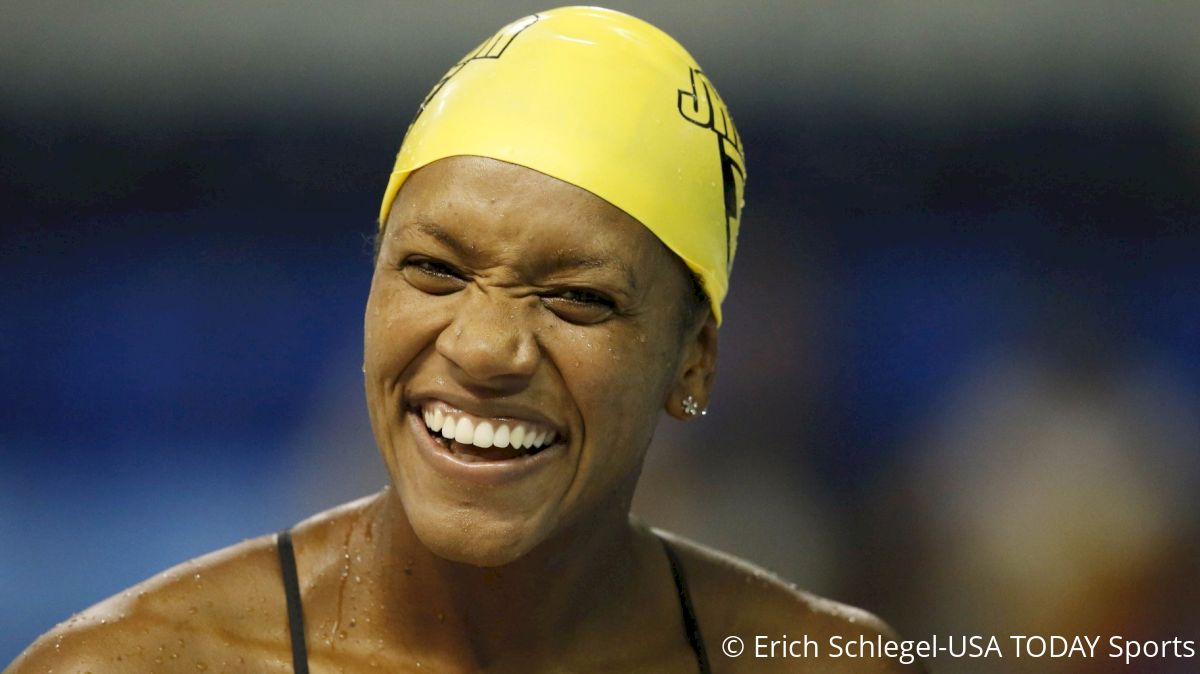Recap: Singapore World Cup
Recap: Singapore World Cup
The Singapore leg of swimming's World Cup gave us plenty of interesting results.

By Adam Mania
The Singapore portion of the World Cup was highlighted by a series of quick swims, including new circuit records and world-record scares on October 21-22.
US on Alert
United States Olympian Molly Hannis got her first taste of this year's World Cup, earning a bronze in the 50 breast and 100 breast. Breeja Larson came home with her first gold medal, triumphing in the 200 breast with a time of 2:18.95 -- just ahead of Russia's Yulia Efimova.
Also, U.S. Olympian Kelsi Worrell reached on the podium as well for her first World Cup meet this season. Worrell placed second in the 50 fly in 25.45 -- a few tenths behind Denmark's Ottesen. However, the 50 fly was Worrell's only swim of the meet, and it's curious to see as to why she didn't swim the 50 free or 100 fly.
World Record Scare
So so close. Jamaica's Alia Atkinson once again comes within a gasp of the 1:02.36 world record she shares with Ruta Meilutyte. She was only .04 off, touching the wall in 1:02.40.
Also, former world champion Marco Koch came within a second of Daniel Gyurta's world record, going 2:01.41 in the 200 breast.
World Cup Record!
Ukraine's Mykhailo Romanchuk broke Grigorio Paltrinieri's World Cup record, touching the wall in 14:15.49, but Romanchuk is still seconds off the Italian's world record. This mark, undoubtedly, should come down at Short Course Worlds.
No Breaststroke for the Breaststroker
U.S.' Josh Prenot was absent from any of the breaststroke races, competing in the 100 IM and 50 fly. I think that's what is so fun about these World Cups. Not that much pressure, great prize money, and the flexibility to do different events. The entry lists are also thin, so athletes don't have to go too fast in the morning and can conserve their energy.
The Singapore portion of the World Cup was highlighted by a series of quick swims, including new circuit records and world-record scares on October 21-22.
US on Alert
United States Olympian Molly Hannis got her first taste of this year's World Cup, earning a bronze in the 50 breast and 100 breast. Breeja Larson came home with her first gold medal, triumphing in the 200 breast with a time of 2:18.95 -- just ahead of Russia's Yulia Efimova.Also, U.S. Olympian Kelsi Worrell reached on the podium as well for her first World Cup meet this season. Worrell placed second in the 50 fly in 25.45 -- a few tenths behind Denmark's Ottesen. However, the 50 fly was Worrell's only swim of the meet, and it's curious to see as to why she didn't swim the 50 free or 100 fly.
World Record Scare
So so close. Jamaica's Alia Atkinson once again comes within a gasp of the 1:02.36 world record she shares with Ruta Meilutyte. She was only .04 off, touching the wall in 1:02.40. Also, former world champion Marco Koch came within a second of Daniel Gyurta's world record, going 2:01.41 in the 200 breast.